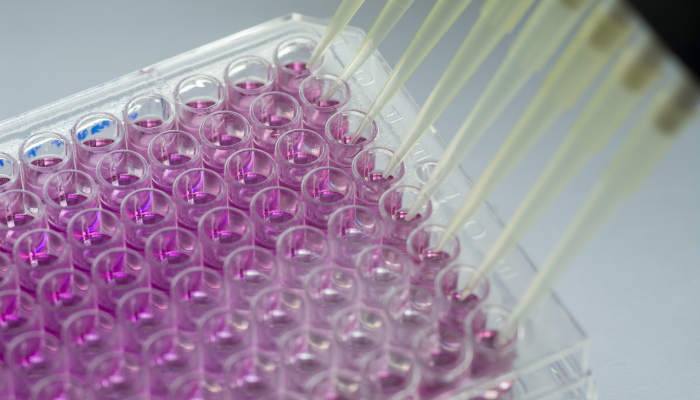Cytotoxicity and Cell Viability

Cell viability and cytotoxicity assays are powerful tools investigating the effect of various treatments (e.g. chemical, environmental) for their effect on cell growth and viability.
In vitro proliferation assays determine the number of viable cells and are based on quantifying the number of cell nuclei, metabolic activity, or mitochondrial integrity. Together with cytotoxicity and apoptosis assays, they help assess the cellular response to chemical compounds, novel therapeutics, or environmental factors.
Additionally, cell-dependent cytotoxicity assays evaluate immune-mediated target cell destruction. These include T-cell-dependent cytotoxicity assays (TDCC), natural killer (NK) cell-mediated cytotoxicity assays (NKCC), and antibody-dependent cell-mediated cytotoxicity (ADCC) assays, which analyze the role of antibodies in mediating immune responses against target cells.
Service Highlights
- T cell dependent cytotoxicity assay (TDCC)
- NK cell mediated cytotoxicity (NKCC)
- Antibody dependent cytotoxicity assay (ADCC)
- Cell Proliferation (Resazurin Reduction Assay/alamarBlue®)
- ATP assay for detection of viable cells (cell viability)
- LDH Release Assay (cytotoxicity)
- Caspase-3/7 Activity Assay (apoptosis)
- IC50 Studies
- Full customization of workflow and assay formats available
Please contact us if you can’t find the method required in the list above!